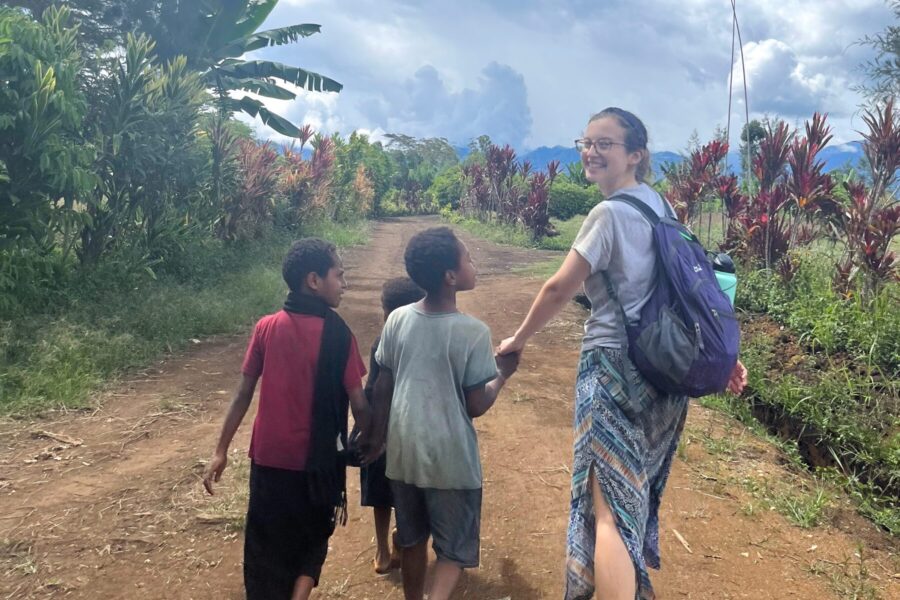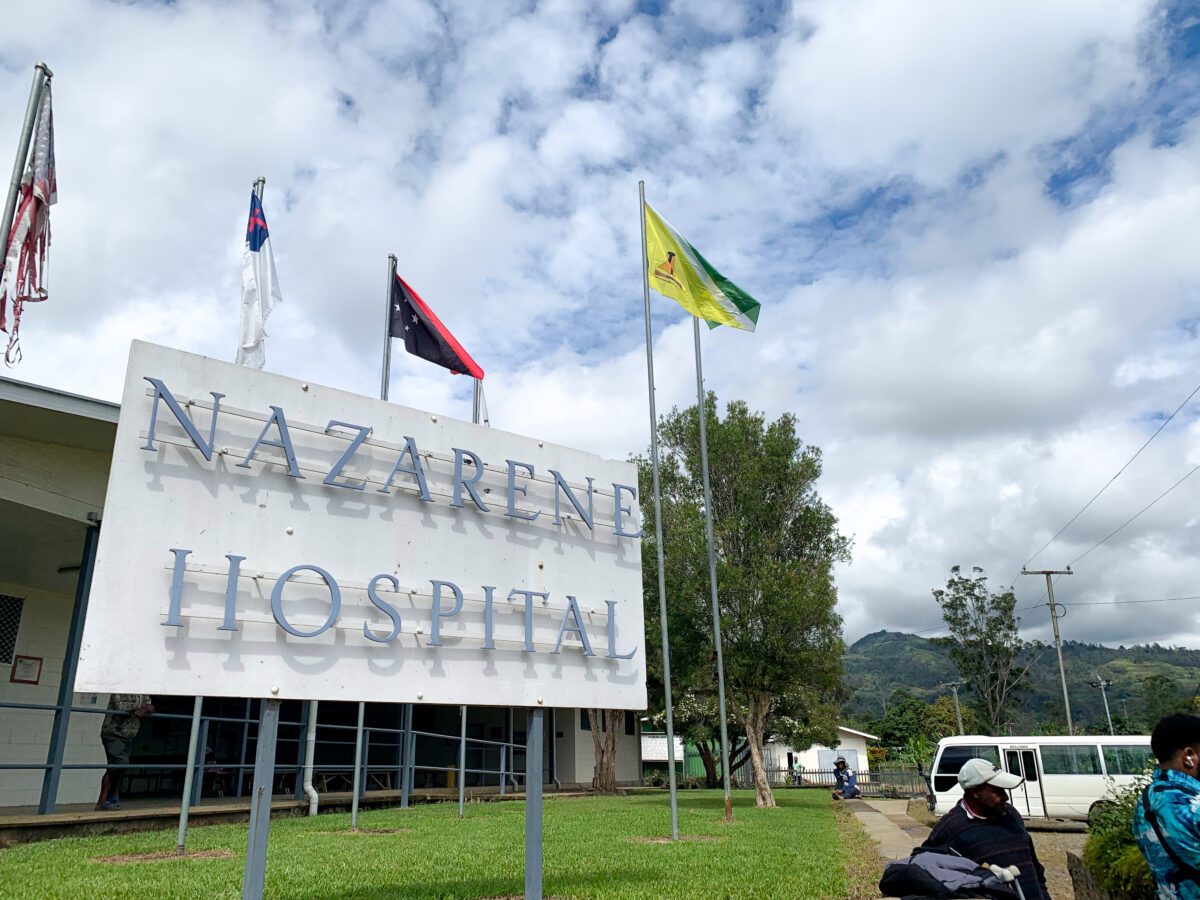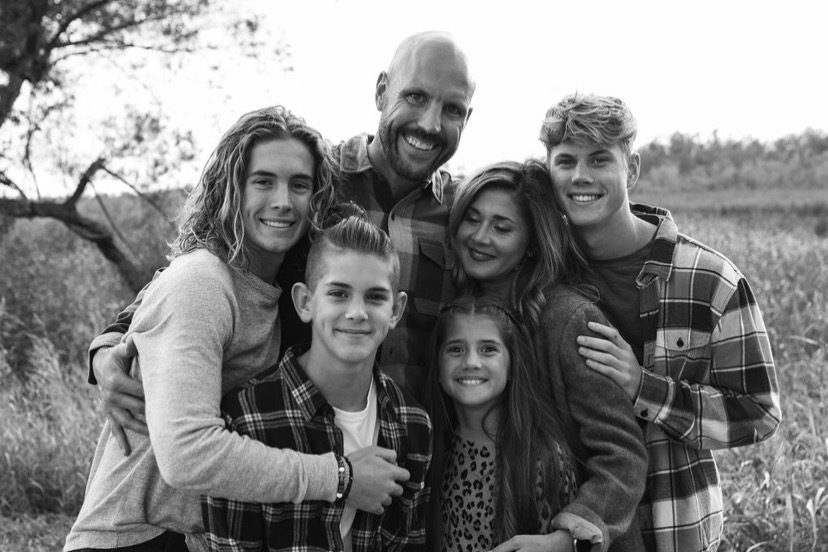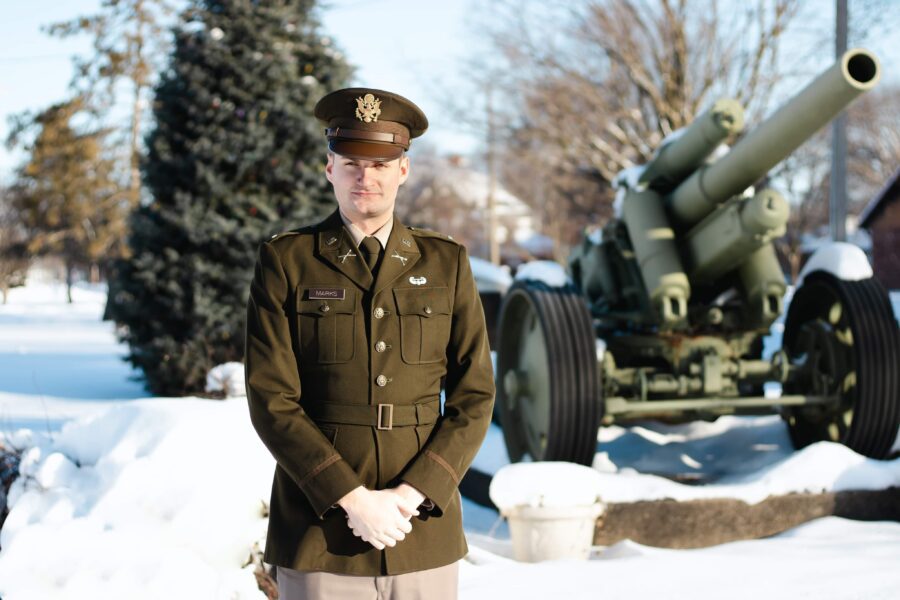
Dr. Nicole Vander Schaaf, assistant professor of biological sciences, wasn’t sure how her training in cell and molecular biology might connect with God’s plan for service through missions.
“I grew up thinking mission workers were people building houses or being doctors, and I knew I didn’t have those skill sets,” she says.
But she did have a heart for missions, so when she was invited last summer by Dr. Mike Pyle, former chair of the biology department, to accompany students on a medical mission to Papua New Guinea, she jumped at the chance — and “ended up doing things I never dreamed I’d be doing,” she says.
At Olivet, Dr. Vander Schaaf supervises student research projects and teaches courses in biology, microbiology and genetics. She holds a Ph.D. in molecular and cellular biology with a research background in cancer biology and microbiology.
On the mission field in Papua New Guinea, Dr. Vander Schaaf assisted in surgeries. She had a front-row seat to the medical services the hospital provides every day. A biology research expert, she was stretched in new ways.
“There were often several surgeries a day — everything from delivering babies via cesarean section to reattaching severed fingers,” she recounts of her time at Kudjip Nazarene Hospital in the Western Highlands province.
The experience was rewarding, but Dr. Vander Schaaf continued to look for ways that her research expertise could be of service. Through conversations with the missionary doctors, she realized that her skill set could help meet one of the current needs of the hospital: screening for human papillomavirus (HPV), the sexually transmitted virus that can cause cervical cancer in women. Cervical cancer, a preventable disease that the World Health Organization has named a global health priority in low-income countries, is a major concern in Papua New Guinea.
“It has a major impact,” Dr. Vander Schaaf explains, “because when it strikes, usually women in their 30s to 50s, it is devastating, obviously for the victims but also for the large families that usually depend on these mothers.”
Because cervical cancer is treatable if caught early enough, testing women for cancer-causing strains of HPV can help identify susceptible women before it’s too late. And because HPV spread is exacerbated through polygamy and sexual abuse, this is a place, Dr. Vander Schaaf points out, where microbiology can be a true work of God’s healing.
When she returns to Papua New Guinea this summer, she won’t be alone. In addition to the Pyles and four nursing students, the team this year will also include Dr. Michael Wade, an engineering professor who will be working with a student to help develop engineering solutions for the hospital’s remote field station. And Dr. Vander Schaaf will have a student researcher as well in junior biology major Lucy Martinson, who is building her Honors Program research project around the HPV screening process.
Martinson, who plans to go into medicine and who works as an emergency room technician at a local hospital, is excited about the possibilities the project holds for her.
“It has already been a huge learning experience,” she explains. “It’s helped me realize how much of our medical infrastructure we take for granted. Even things that would be simple at the ER can become a real challenge in a third-world country.”

The project has also given her opportunities to connect with experts in the field.
“We’ve been in close contact with the lead researcher on HPV in Papua New Guinea and in virtual meetings with doctors there and in Australia,” Lucy says. “It’s exciting to have a place at the table with doctors and scientists making a difference in that part of the world.”
For Lucy, the chance to conduct research goes even deeper.
“This project has been a miracle of God for me,” she says. “Gaining experience in medical missions that I can use for the rest of my career, helping others and seeing what it’s like to practice medicine across cultures — I’m incredibly grateful for the opportunity.”
Screening for HPV at Kudjip Nazarene Hospital is where Dr. Vander Schaaf’s expertise can meet her passion for missions. With the help of funding through the generous donors of Olivet’s Hippenhammer Grant, McGraw Fellowship and Catalyst funds, Dr. Vander Schaaf is preparing to return to Papua New Guinea this summer with 300 HPV testing kits and plans for piloting a screening process.
“The tests are relatively expensive,” Dr. Vander Schaaf explains, “so one of our goals is to test the efficacy of a cheaper, more sustainable testing method alongside the established method.”
This could allow Kudjip Nazarene Hospital to implement its own permanent screening protocol. There are still some hurdles to be worked out, but Dr. Vander Schaaf is hopeful.
“Through screening and education of those coming to the hospital for routine health services, we can make a real difference in this region saving women’s lives,” she says.
From Olivet The Magazine, Compassion & Conviction – Spring 2024. Read the full issue here.





